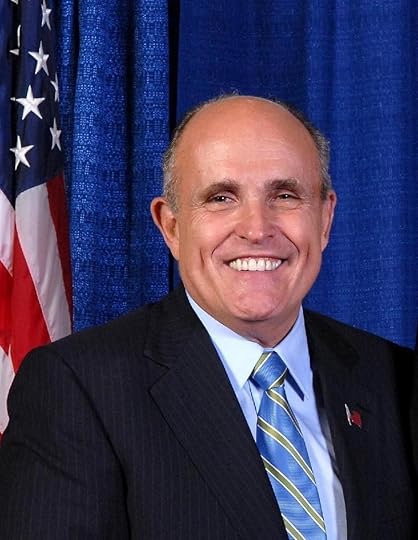Trent Ruble's Blog: The Other Way It Is - Posts Tagged "service"
Broken Windows, Broken Promises
Compared to the largest of American cities, the Indiana city of 17,000 from which I retired as a police detective is quite small. And, even though the police department wasn't and isn't exactly where it should be, we understood customer service. Our officers responded to every call for service and accommodated the victims and other complainants in whatever way was appropriate. However, in some other, usually larger, American cities, this service is missing.
The police administrations and prosecutors in those large cities will tell you, as they've told me, that they don't have the resources to respond to minor calls for service or prosecute minor crimes. Nonetheless, the calls are for service and require a response. The broken laws, especially those which involve personal safety and the protection of property, have been made laws by the leaders we elected. They are important to the people and must be enforced. The necessary resources must somehow be made available. Otherwise we will slide into third world status. We never intended that someone other than the lawmakers we elected make the determination of enforcement. It's a quality of life issue. (Note - This idea should never preclude an officer's discretion as the officers are the ones at the crime scenes and the ones who must testify if necessary.)
 Rudy Giuliani
Rudy Giuliani
Rudy Giuliani, the former mayor of New York City and one-time United States presidential candidate, adhered to social scientists James Q. Wilson and George L. Kelling's theory about minor crimes known as the "Broken Windows Theory." In this theory, major crimes are reduced in frequency due to the attention given minor crimes. In other words, addressing minor crimes changes the environment to one in which major crimes do not flourish. The theory was put into place by Mayor Giuliani in 1993 and was followed by a sudden and dramatic drop in overall crime (Carrots, Sticks, and Broken Windows by Corman and Mocan). It seems that the same people committing misdemeanors were the ones committing felonies. Therefore, when the misdemeanants were temporarily removed from the street, so were the felons. I personally observed the difference the theory made in New York in 2000 when I visited with my family. I had been to the city in 1976 and had noticed its run-down appearance and dangerous feeling of lawlessness. However, upon my return in 2000, the feeling of the city was quite different. The streets where I'd seen prostitutes and strip clubs were now homes to legitimate businesses. Even the people seemed friendlier. However, in spite of the success of the Broken Windows Theory in New York City, many cities have yet to adopt it.
In cities where a personal police response is determined by the severity of the crime, misdemeanor reports are frequently taken over the telephone. My wife's purse was stolen in one of these cities and an officer never made an appearance at the scene, even though she could have given the officer the description of the perpetrator and his direction of travel. In my 26 years of police work, I've found that much can be learned from a simple visit to the scene of a crime, even a minor crime. For example, many times a witness can be found who can provide valuable information, or evidence can be found that might steer the investigation in the right direction.
As a citizen, I am requesting that all crimes be investigated and those that are forwarded for prosecution be prosecuted. And, obviously, these crime scenes can't be investigated by telephone, but by the personal appearance of a police officer. Give the people, who are the employers of the government, what they want and expect. And, especially for the attention of state police departments; don't allow revenue to influence which offenses are enforced. We don't like that.
The police administrations and prosecutors in those large cities will tell you, as they've told me, that they don't have the resources to respond to minor calls for service or prosecute minor crimes. Nonetheless, the calls are for service and require a response. The broken laws, especially those which involve personal safety and the protection of property, have been made laws by the leaders we elected. They are important to the people and must be enforced. The necessary resources must somehow be made available. Otherwise we will slide into third world status. We never intended that someone other than the lawmakers we elected make the determination of enforcement. It's a quality of life issue. (Note - This idea should never preclude an officer's discretion as the officers are the ones at the crime scenes and the ones who must testify if necessary.)
 Rudy Giuliani
Rudy GiulianiRudy Giuliani, the former mayor of New York City and one-time United States presidential candidate, adhered to social scientists James Q. Wilson and George L. Kelling's theory about minor crimes known as the "Broken Windows Theory." In this theory, major crimes are reduced in frequency due to the attention given minor crimes. In other words, addressing minor crimes changes the environment to one in which major crimes do not flourish. The theory was put into place by Mayor Giuliani in 1993 and was followed by a sudden and dramatic drop in overall crime (Carrots, Sticks, and Broken Windows by Corman and Mocan). It seems that the same people committing misdemeanors were the ones committing felonies. Therefore, when the misdemeanants were temporarily removed from the street, so were the felons. I personally observed the difference the theory made in New York in 2000 when I visited with my family. I had been to the city in 1976 and had noticed its run-down appearance and dangerous feeling of lawlessness. However, upon my return in 2000, the feeling of the city was quite different. The streets where I'd seen prostitutes and strip clubs were now homes to legitimate businesses. Even the people seemed friendlier. However, in spite of the success of the Broken Windows Theory in New York City, many cities have yet to adopt it.
In cities where a personal police response is determined by the severity of the crime, misdemeanor reports are frequently taken over the telephone. My wife's purse was stolen in one of these cities and an officer never made an appearance at the scene, even though she could have given the officer the description of the perpetrator and his direction of travel. In my 26 years of police work, I've found that much can be learned from a simple visit to the scene of a crime, even a minor crime. For example, many times a witness can be found who can provide valuable information, or evidence can be found that might steer the investigation in the right direction.
As a citizen, I am requesting that all crimes be investigated and those that are forwarded for prosecution be prosecuted. And, obviously, these crime scenes can't be investigated by telephone, but by the personal appearance of a police officer. Give the people, who are the employers of the government, what they want and expect. And, especially for the attention of state police departments; don't allow revenue to influence which offenses are enforced. We don't like that.
Published on September 01, 2013 09:52
•
Tags:
broken-windows-theory, crime, law-enforcement, new-york, new-york-city, police, policing, rudy-giuliani, service
How I became the Unintentional Explorer: My Enlistment in the United States Air Force
I graduated from high school in May 1979 and decided not to go to college. I didn't know what I wanted to do in life anyway, so why waste money in attending college just for the sake of attending? It turned out that the only thing really being wasted was my life. And, I wasn't the only one to notice. My parents, especially my dad, were getting tired of seeing me flounder and also tired of me living in their house as I neared 20 years old.
By December I was still living at home and working at a local drug store. Dad had frequently suggested I join the military but that sounded like a horrible idea. I mean, the only thing I didn't like about living at home was Mom and Dad telling me what to do. The military sounded to me like a whole lot more of the same. However, Dad told me a story one day that caught my interest.

Dad said that, when he was in the Air Force in the late 1950s, he was sent on a temporary assignment to Puerto Rico. During the several hour flight in the cargo plane from his base in Texas, he had the opportunity to spend time with the plane's loadmaster. He learned that the loadmaster loved his job, which consisted of supervising the rear of the plane (cargo and passengers). He especially enjoyed having visited over 30 countries in four years of flying.
Dad then encouraged me to talk to an Air Force recruiter about being a loadmaster, but I instantly thought about basic training and how awful that would be. I declined. But, Dad persisted by saying that maybe I could just listen to the recruiter and make a decision at a later time, so I agreed.
My dad and I went to the U. S. Air Force Recruiting Office in nearby Fort Wayne where the recruiter explained the loadmaster position to me as well as the requirements for getting the job. One of those requirements was to score high enough on the ASVAB (Armed Services Vocational Aptitude Battery) and he suggested I take it. He said there was no commitment involved but, without the test, there was no sense in continuing to discuss being a loadmaster, so I agreed.
My ASVAB score was high enough to be considered, so the recruiter told me that I should take the required physical examination at the MEPS (Military Entrance Processing Station) in Indianapolis. He said there was no committment involved but, without passing the physical, there was no sense in continuing to discuss being a loadmaster, so I agreed.
On December 31, 1979, I traveled to Indianapolis where, along with several other recruits, we took the physical exam. After passing, we were herded into a room with a podium in front of a couple dozen chairs. There were flags on each side of the podium making it look very official. We were told that we were in the room because we had passed the physical and were now going to be given the opportunity to enlist. Somehow, this whole process seemed orchestrated from the start. I knew the most logical thing to do was to decline the enlistment and go home and think about it so that I could make a rational decision. But, I also knew what the decision would be. My life had no purpose the way it was and the Air Force offered the opportunity for adventure and excitement, as well as the opportunity to make a difference in the world. I made the decision, took the oath and was placed on delayed enlisted that day.
On April 11, 1980, I returned to MEPS for in-processing. Unfortunately, my suitcase didn't make the trip as I'd left it at the bus station back home. My parents made a special 200-mile round trip just to bring it to me. The next day I flew off to Lackland Air Force Base in San Antonio to begin the adventure (see All-Expense Paid Vacation in Sunny San Antonio!).
It's been many years now since I was in the Air Force, but I think about it often. I was able to visit more than 30 countries in four years, just as the loadmaster years before had done. Not only that, there were many adventures that I'll never forget (see International Incident, International Incident, Part 2 , and In-Flight Emergency!). I'm proud of my service and miss that time in my life. I would encourage any young person who doesn't have a plan for what to do with his or her life to consider the military. It can be a very rewarding experience.
By December I was still living at home and working at a local drug store. Dad had frequently suggested I join the military but that sounded like a horrible idea. I mean, the only thing I didn't like about living at home was Mom and Dad telling me what to do. The military sounded to me like a whole lot more of the same. However, Dad told me a story one day that caught my interest.

Dad said that, when he was in the Air Force in the late 1950s, he was sent on a temporary assignment to Puerto Rico. During the several hour flight in the cargo plane from his base in Texas, he had the opportunity to spend time with the plane's loadmaster. He learned that the loadmaster loved his job, which consisted of supervising the rear of the plane (cargo and passengers). He especially enjoyed having visited over 30 countries in four years of flying.
Dad then encouraged me to talk to an Air Force recruiter about being a loadmaster, but I instantly thought about basic training and how awful that would be. I declined. But, Dad persisted by saying that maybe I could just listen to the recruiter and make a decision at a later time, so I agreed.
My dad and I went to the U. S. Air Force Recruiting Office in nearby Fort Wayne where the recruiter explained the loadmaster position to me as well as the requirements for getting the job. One of those requirements was to score high enough on the ASVAB (Armed Services Vocational Aptitude Battery) and he suggested I take it. He said there was no commitment involved but, without the test, there was no sense in continuing to discuss being a loadmaster, so I agreed.
My ASVAB score was high enough to be considered, so the recruiter told me that I should take the required physical examination at the MEPS (Military Entrance Processing Station) in Indianapolis. He said there was no committment involved but, without passing the physical, there was no sense in continuing to discuss being a loadmaster, so I agreed.
On December 31, 1979, I traveled to Indianapolis where, along with several other recruits, we took the physical exam. After passing, we were herded into a room with a podium in front of a couple dozen chairs. There were flags on each side of the podium making it look very official. We were told that we were in the room because we had passed the physical and were now going to be given the opportunity to enlist. Somehow, this whole process seemed orchestrated from the start. I knew the most logical thing to do was to decline the enlistment and go home and think about it so that I could make a rational decision. But, I also knew what the decision would be. My life had no purpose the way it was and the Air Force offered the opportunity for adventure and excitement, as well as the opportunity to make a difference in the world. I made the decision, took the oath and was placed on delayed enlisted that day.
On April 11, 1980, I returned to MEPS for in-processing. Unfortunately, my suitcase didn't make the trip as I'd left it at the bus station back home. My parents made a special 200-mile round trip just to bring it to me. The next day I flew off to Lackland Air Force Base in San Antonio to begin the adventure (see All-Expense Paid Vacation in Sunny San Antonio!).
It's been many years now since I was in the Air Force, but I think about it often. I was able to visit more than 30 countries in four years, just as the loadmaster years before had done. Not only that, there were many adventures that I'll never forget (see International Incident, International Incident, Part 2 , and In-Flight Emergency!). I'm proud of my service and miss that time in my life. I would encourage any young person who doesn't have a plan for what to do with his or her life to consider the military. It can be a very rewarding experience.
Published on April 20, 2017 14:18
•
Tags:
air-cargo, air-force, loadmaster, military, military-service, service, united-states-air-force, us-air-force, usaf, world-travel
The Other Way It Is
The stories and opinions of author Trent Ruble.
Find Trent Ruble on Facebook at: https://www.facebook.com/taruble/ The stories and opinions of author Trent Ruble.
Find Trent Ruble on Facebook at: https://www.facebook.com/taruble/ ...more
Find Trent Ruble on Facebook at: https://www.facebook.com/taruble/ The stories and opinions of author Trent Ruble.
Find Trent Ruble on Facebook at: https://www.facebook.com/taruble/ ...more
- Trent Ruble's profile
- 17 followers



